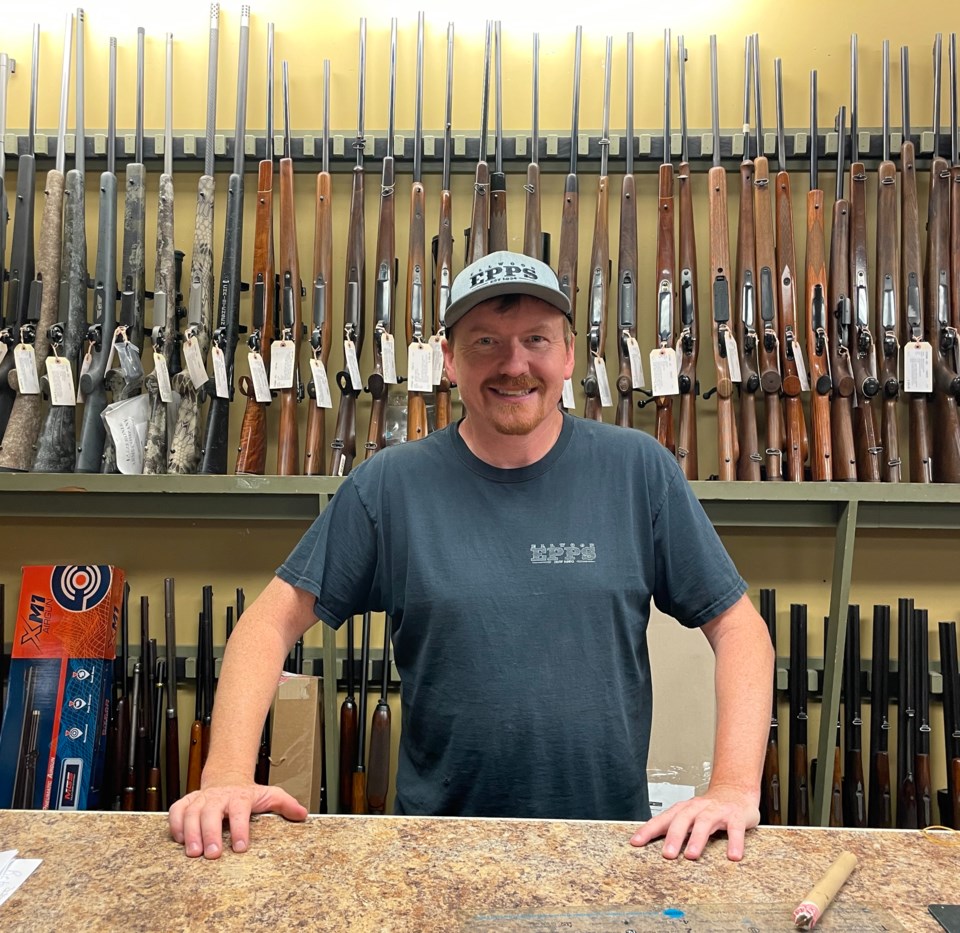Gun sales have shot up at an Orillia-area sporting goods store since the federal government announced Bill C-21, which proposes to restrict the sale of handguns May 30.
Ellwood Epps Sporting Goods owner Wes Winkel says he has sold more than 1,500 handguns in the past 10 days at his shop in Severn Township.
“We went from zero to 100,” he said Monday. “I mean it — we’ve sold a little over 1,500 handguns in the last 10 days. That’d be the equivalent to 10 months of (usual) sales.”
Bill C-21 proposes to freeze the sale, purchase, or transfer of handguns in Canada, and increase penalties for smuggling or trafficking guns. It will also allow for firearms licences to be taken from those involved in domestic violence, and introduce a “red-flag” law that will require people who are deemed a threat to themselves to turn in their firearms, among other new restrictions.
The bill is set to come into effect this fall, according to the federal government website.
Winkel said he has seen a variety of people scramble to purchase guns in recent weeks.
“It’s been absolutely crazy. Everybody is trying to get their hands on that last gun that they like to use at the range, almost exclusively by guys that are members of gun clubs,” he said. “There’s been the odd person that has a wilderness carry permit who defends themselves in the forest from bears, and then there has been a large increase in target shooters that have been looking to get a firearm.”
Despite the increased sales at the moment, Winkel said the freeze will have an adverse effect on business.
“Long term, it’s disastrous. We employ 34 people that are at our hunting and shooting location, and 35 per cent of what I do is handgun and handgun sports related,” he said. “There’s no question that it will have a dramatic impact.”
Though the bill is meant to reduce gun violence in Canada, Winkel — who serves as president of the Canadian Sporting Arms and Ammunition Association (CSAAA) — said the freeze will not address the root of the problem.
He argued gun violence finds its roots in socioeconomic issues — which, for example, might lead to a young person joining a gang — and highlighted the stringent set of restrictions legal gun owners need to abide by, including written and practical tests, personal references, and background checks by the RCMP, among numerous other measures required in order to obtain a gun legally.
“The gun ban will have no effect on crime any which way,” he said.
“I’ve sat on the guns and gangs panel for the federal government for a number of years, and I can tell you that the problem with crime and gang-initiated violence is that it’s a large problem in our country, and it takes an investment and time to fix,” he said. “The problem is that doesn’t sound like a sexy initiative on an election campaign, but what’s easy is to say, ‘We’re going to ban guns.’”
Simcoe North MP Adam Chambers similarly highlighted the bill will not address the heart of the issue with gun violence, and he feels the current legislation is “robust” enough in its restrictions.
“It is quite difficult to get your hands on a gun or firearm in the legal system right now,” he said.
“We should be, as a society, (asking) how do we stop smuggling illegal firearms? And how do we address the root causes of people who find themselves getting involved with criminal activity or gang-related activity? What can we do as a society to better address some of those broader issues? What the government is proposing is not actually (about) either of those things. I don’t believe that it’s going to make our streets safer. We’re really just clamping down even harder on individuals that are not associated with the increased crime that we’ve seen.”
Chambers said there are gaps in data with regard to gun violence, and he argued the government is acting without the full picture.
“(The government) has not shared any information with the public about how many guns are used in some of these weapons-related offences, (if they) are, in fact, through the legal system or if they’re outside of the legal system and illegally smuggled,” he said. “Presumably, the government has access to this data, and if they don’t have access to this data, I think you’d be asking yourself, ‘Why does (the government think) that what it’s doing is going to make a difference?’”
Chambers said it is “unfortunate that the government is using very unfortunate events and heinous crimes across the border as a backdrop in which to justify additional legislation. I think, in Canada, what we need to do is have an honest conversation about where the guns are coming from that are being used in crime.”



